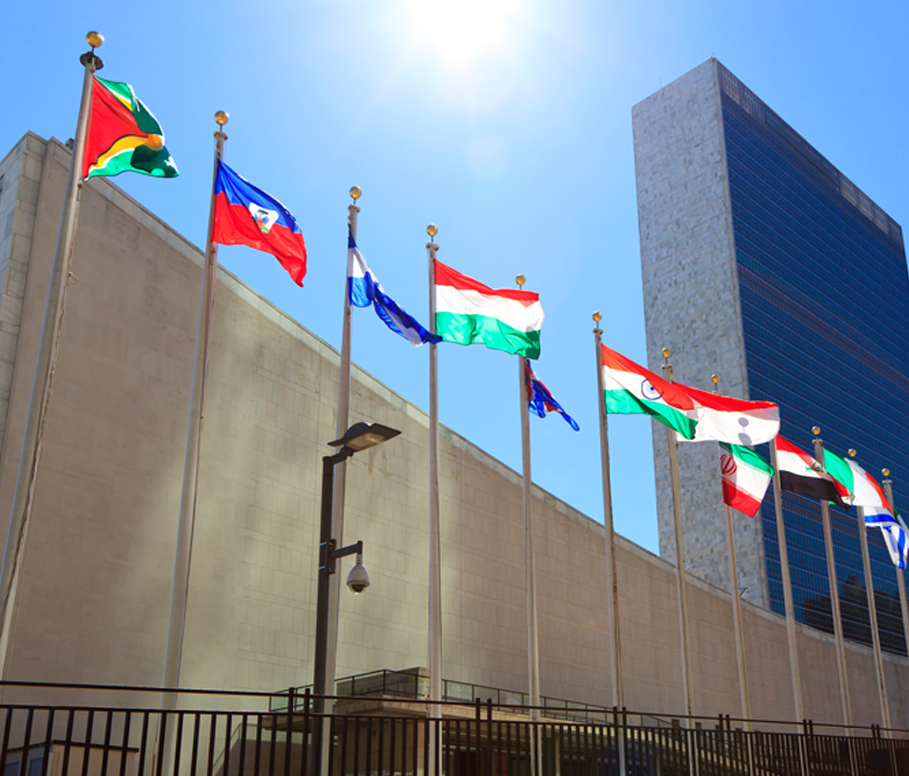Last week world leaders convened for the annual UN General Assembly in New York City, which featured the first-ever UN High-Level Meeting on Universal Health Coverage (UHC). In their remarks, government officials and civil society representatives emphasized the need for holistic approaches to health, greater collaboration among different parts of society, and innovative ways to address barriers impeding access to health coverage and care. World leaders adopted at this meeting a Declaration identifying steps to tackle the real barriers standing between patients and the treatments they need and emphasizing the need for adequate funding for health care. Read on for highlights from several of the delegates.
Holistically Addressing the Real Barriers to Access
At the UN High-Level Meeting, leaders repeatedly emphasized the need for holistic, whole-of-society approaches to achieving UHC. Instead of looking at health challenges out of context, they sought to look broadly at how entire health care systems perform. Whether it be the need for “an adequate health workforce,” as President of Nauru Lionel Aingimea noted, or sufficient funding mechanisms as suggested by UN Secretary-General António Guterres, leaders considered an unusually broad range of elements needed for UHC to become a reality. Sierra Leone was one of several countries that highlighted promising, comprehensive efforts under way to address the barriers to access, including investing in financing, infrastructure and the recruitment of health workers. And as President Julius Maada Bio noted, the country is also “leveraging the power of healthcare technology and innovation to improve access.”
Collaboration and New Thinking, Especially Around Funding
Leaders such as Guterres, Thailand’s Foreign Affairs Minister Don Pramudwinai, End Malaria’s Board Chair Maha Taysir Barakat, the Prime Minister of Bangladesh Sheikh Hasina Wazed and many others, repeatedly underscored the critical role of “multisector and industry collaboration” to success in achieving UHC. In particular, new models of funding were brought up repeatedly as an area of focus.
For example, World Bank Group President David Malpass was one of many experts calling for increased innovation and investment around “improved funding and health systems,” which he noted were “vital” to UHC. To do so, he noted one priority was to “redouble efforts to engage the private sector to unlock new financing mechanisms.” U.S. Secretary of Health and Human Services Alex Azar also referred to the “the strengths and resources of both the public and private sectors” and highlighting the need to promote partnerships.
Recent discussions on UHC focused on holistic solutions, collaboration, and innovation – these are all essential elements of realizing the dream of health for all.
Some Progress, But More Innovation Needed
Many leaders came back to the idea that more innovation is needed to deliver health care for all. For example, Georgian President Salome Zourabichvili noted that “UHC is attainable even with countries with limited resources…” and stated, “As a main mechanism to eliminate financial barriers, UHC has brought the reduction of 25 percent of expenditures” since it was established in the country. But she counseled that, even with this success, “we need to be more proactive, have more innovation.” Secretary-General Guterres also emphasized that “innovative cross-sectoral investments” will be essential to success.
Together, UHC and private sector life sciences innovation can promote continued progress and well-being for all.
These important discussions in New York about holistic solutions, collaboration, and innovation are an important step in the right direction. Now it’s up to governments around the world – working together with the private sector and civil society – to turn these principles into action.


